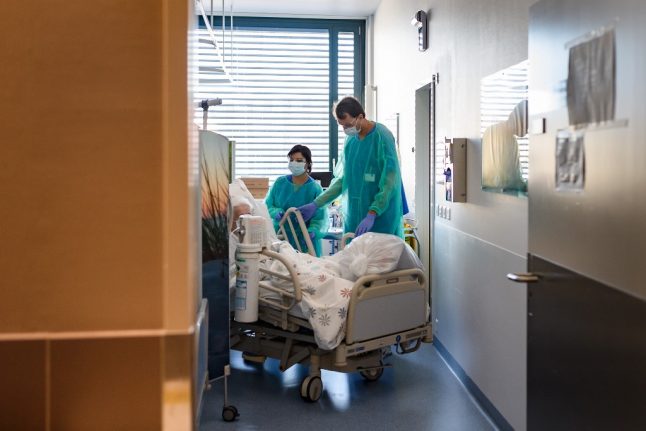“This morning, I was asked to take one more patient… so I had to transfer the most stable patient I had to another hospital to make room,” Herve Zender, the chief physician at the La-Chaux-de-Fonds's ICU, told AFP.
The sudden reorganisation at the hospital in western Switzerland has in recent days become routine.
“This is something we are doing basically every day at the moment,” he said. “The unit is constantly full. We have no back-up.”
For weeks now, the novel coronavirus has been mercilessly lashing Switzerland, and in particular its French-speaking region, where hospitals are rapidly becoming overwhelmed.
Switzerland emerged relatively unscathed from the first wave of Covid-19 infections in the spring, but as a second wave engulfs Europe, health workers here agree the situation in the wealthy Alpine nation this time is far more worrying.
'Far more patients'
“There are far more patients” this time around, Zender said.
Head nurse Brigitte Hostettler agreed.
“One could say the first wave was bearable. We managed to handle everything and we did not see a massive influx,” she told AFP.
“But now, this is just becoming very difficult to manage.”
Switzerland, a country of 8.5 million people, is currently seeing one of Europe's greatest spikes in case numbers compared to population size.
In recent days its daily case count has repeatedly surpassed 10,000, and now counts over 200,000 cases and more than 2,330 deaths since the start of the pandemic.
And hospitalisations are surging.
“There are too many patients. Too many hospitalised patients. It is complicated,” Hostettler said.
“There are also far more staff members who have tested positive.”
As for who the patients are, she said they were of “all ages”.
“A lot of them are elderly, between 70 and 80 or older, but there are also younger people, who are 45, 35.”
The Swiss canton of Neuchatel, where the La-Chaux-de-Fonds hospital is located, currently counts 314 positive tests per 10,000 inhabitants.
That is nearly twice the infection rate in Switzerland overall, where there are currently 174 infections per 10,000 people, according to the Neuchatel hospital network (RHNe).
In a bid to face the surge in infections, the network has boosted its bed and staffing capacity to allow it to care for up to 250 hospitalised Covid-19 patients at once.
On Wednesday, 120 patients who had tested positive for Covid-19 and 19 suspected cases were hospitalised across the canton of some 33,000 inhabitants, RHNe said.
The La-Chaux-de-Fonds hospital has meanwhile been forced to halt all surgical activities, postponing many interventions and sending the most urgent cases to other hospitals.
'Mentally and physically exhausted'
The health workers here say they understand that the population is “fed up” with the increasingly strict measures aimed to rein in the pandemic.
But they say most people do not appear to realise just how quickly and how dangerously the situation in the hospitals has devolved.
Some also criticise the Swiss government for not taking more decisive
measures.
Bern last week announced a slew of measures, including more stringent requirements on wearing face masks and crowd sizes, but stopped short of returning the entire country to the partial confinement of the spring.
A number of cantons, including Neuchatel, have meanwhile gone the extra mile and ordered restaurants, bars and most shops shuttered.
Health care workers say they hope that will be enough to slow the surge.
“Everyone is tired,” said Jeremy Bouhelier, head nurse in the ICU.
“Just mentally and physically exhausted.”



 Please whitelist us to continue reading.
Please whitelist us to continue reading.
Member comments